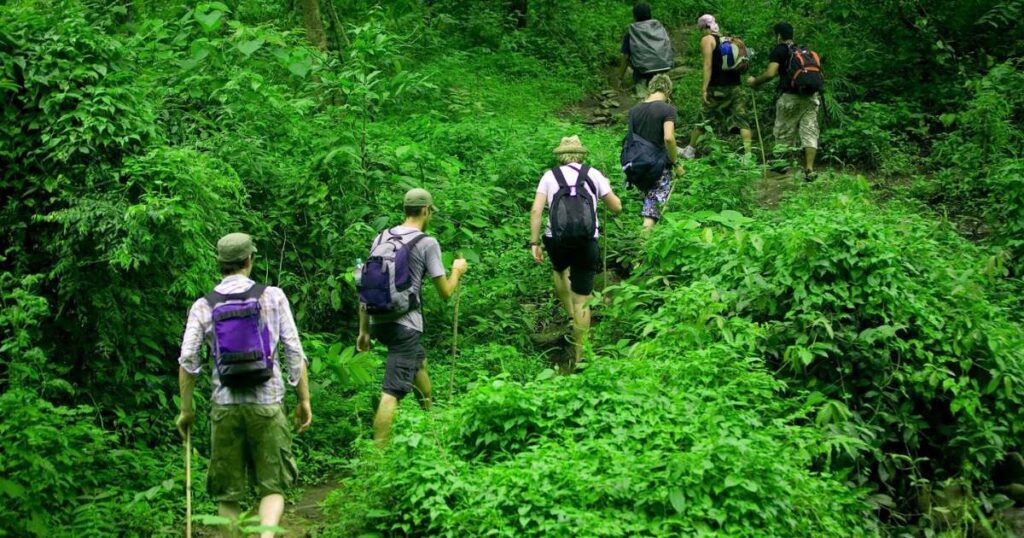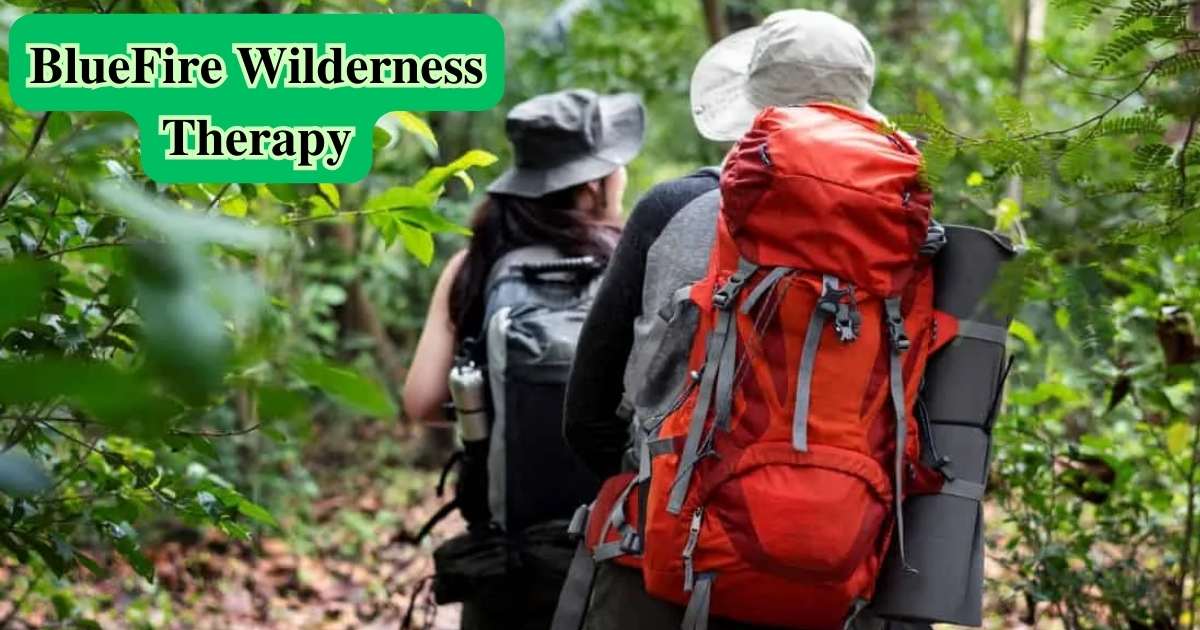In today’s fast-paced world, where mental health challenges among adolescents and young adults are on the rise, traditional therapy approaches may not always resonate.
Enter BlueFire Wilderness Therapy, a pioneering wilderness therapy program that offers a unique and immersive journey towards healing.
Nestled in the breathtaking landscapes of Idaho, this program combines the restorative power of nature with evidence-based therapeutic techniques, creating a transformative experience for participants aged 11 to 28.
BlueFire Wilderness Therapy
BlueFire Wilderness Therapy is founded on the belief that removing individuals from the distractions of modern life and immersing them in the wilderness can profoundly impact their emotional and psychological well-being.
Established by a team of passionate mental health professionals and outdoor enthusiasts, the program has gained recognition for its innovative approach to addressing a wide range of emotional, social, and behavioral challenges.
BlueFire Wilderness Therapy Reviews
The reviews and testimonials from participants and their families paint a compelling picture of BlueFire’s effectiveness.
Many have praised the program for its ability to foster personal growth, resilience, and a renewed sense of purpose.
Here’s what some participants have to say:
“BlueFire Wilderness Therapy was a turning point in my life. The combination of outdoor adventures and therapeutic support helped me confront my struggles in a safe and supportive environment.” – Sarah, former participant
“We were hesitant about sending our son to a wilderness program, but BlueFire exceeded our expectations.
The staff’s compassion and expertise, coupled with the healing power of nature, have been life-changing for our family.” – John and Emily, parents of a former participant
While the majority of reviews are overwhelmingly positive, it’s important to note that some individuals have shared concerns or criticisms, which will be addressed later in this article.
Therapeutic Approach and Activities
At the heart of BlueFire’s therapeutic model is the seamless integration of wilderness experiences and evidence-based therapies.
Participants engage in a variety of outdoor activities, such as:
- Hiking and backpacking excursions, fostering physical endurance and a sense of accomplishment.
- Rock climbing and rappelling, building trust, confidence, and problem-solving skills.
- Equine therapy, promoting emotional intelligence, empathy, and non-verbal communication.
These activities are expertly woven into individual and group therapy sessions, drawing upon techniques like Cognitive Behavioral Therapy (CBT) and Dialectical Behavior Therapy (DBT).
This unique blend of adventure and therapy creates an environment where participants can explore their emotions, develop coping mechanisms, and cultivate a deeper understanding of themselves and their relationships.
Safety, Accreditation, and Staff Qualifications
Safety is a top priority at BlueFire Wilderness Therapy. The program adheres to rigorous standards and practices, ensuring the well-being of its participants at all times.
BlueFire is accredited by the National Association of Therapeutic Schools and Programs (NATSAP), a testament to its commitment to quality and safety.
The staff at BlueFire comprises experienced professionals in the fields of mental health, wilderness therapy, and outdoor leadership.
They undergo extensive training and possess the necessary qualifications to provide comprehensive care and guidance throughout the program.
With their expertise and dedication, participants can embark on their journey with confidence, knowing they are in capable hands.
Participant Experiences and Outcomes
The transformative power of BlueFire Wilderness Therapy is best exemplified through the experiences and outcomes shared by former participants and their families.
Many have reported significant improvements in their mental health symptoms, such as reduced anxiety, depression, and emotional dysregulation.
Participants often experience enhanced self-confidence, improved communication skills, and stronger interpersonal relationships.
One notable case study involves a young adult named Alex, who struggled with substance abuse and behavioral issues.
After completing the BlueFire program, Alex’s parents shared their gratitude:
“We saw a remarkable change in Alex’s attitude and behavior. He developed a newfound appreciation for himself and the world around him.
The skills he learned at BlueFire have enabled him to navigate life’s challenges with resilience and purpose.”
Critical Considerations and Aftercare
While the benefits of wilderness therapy are well-documented, it’s crucial for prospective participants and their families to carefully consider the physical and emotional challenges involved.
The program requires a significant commitment of time and resources, as well as a willingness to step outside one’s comfort zone.
To ensure long-term success, BlueFire Wilderness Therapy offers comprehensive aftercare planning and support.
This includes regular check-ins, access to resources, and guidance on integrating the skills and insights gained during the program into daily life.
By fostering a sense of continuity, BlueFire aims to empower participants to maintain their progress and continue on their path of growth and healing.
The Path Forward
As the need for effective and innovative mental health treatment options continues to grow, wilderness therapy programs like BlueFire offer a compelling alternative to traditional approaches.
By combining the healing power of nature with evidence-based therapies, these programs address not just the symptoms but also the underlying root causes of mental health challenges.
The Role of Community and Connection

One of the most profound aspects of the BlueFire Wilderness Therapy experience is the development of a supportive community among participants.
Shared struggles, triumphs, and experiences in the wilderness forge strong bonds of vulnerability, empathy, and genuine connection.
These connections often extend beyond the program, providing an enduring source of strength and support for participants as they navigate their journeys.
The Multidimensional Impact of Wilderness Therapy
The impact of wilderness therapy programs like BlueFire extends far beyond just mental health.
Participants often experience growth and transformation across various dimensions of their lives, including:
- Personal Development: Enhanced self-awareness, resilience, and confidence.
- Social Skills: Improved communication, teamwork, and conflict resolution abilities.
- Family Dynamics: Strengthened relationships and understanding within the family unit.
The wilderness setting serves as a powerful catalyst for profound personal transformation, challenging participants physically and emotionally while providing a safe space for self-discovery and growth.
Long-term Benefits and Sustainable Change
One of the hallmarks of BlueFire Wilderness Therapy is its commitment to fostering long-term benefits and sustainable change.
Throughout the program, participants acquire a comprehensive toolkit of emotional regulation strategies, coping mechanisms, and life skills that are applicable long after they return home.
By learning to navigate challenges in the wilderness, participants develop resilience and a heightened sense of self-efficacy, empowering them to tackle real-life obstacles with confidence and determination.
The BlueFire Wilderness lawsuit
It’s important to acknowledge the recent BlueFire Wilderness lawsuit, which has brought allegations of negligence, emotional distress, and breach of duty against the program.
Filed by the parents of a former participant, the lawsuit claims their teenager suffered physical injuries and emotional trauma due to inadequate supervision and safety measures.
While the legal process is ongoing, this situation underscores the importance of transparency and accountability within the wilderness therapy industry.
BlueFire Wilderness must address these allegations thoroughly and take necessary steps to ensure the safety and well-being of all participants.
Bluefire Wilderness Complaints
To the lawsuit, BlueFire Wilderness has faced complaints from individuals and families regarding various issues, including:
- Inadequate supervision and safety protocols
- Claims of emotional and physical harm to participants
- Lack of transparency and communication
These complaints have raised concerns within the community and heightened scrutiny of BlueFire Wilderness’s practices and procedures.
It is crucial for the program to thoroughly investigate these complaints, address any legitimate concerns, and implement reforms to uphold the highest standards of care and safety.
Read Also :
Final Thoughts
BlueFire Wilderness Therapy offers a unique and potentially transformative approach to addressing mental health challenges faced by adolescents and young adults.
Through its integration of wilderness experiences and evidence-based therapies, the program provides a pathway to healing that is both challenging and rewarding.
While the positive impact and success stories shared by many participants and families are promising, it is equally important to acknowledge and address the concerns raised through the lawsuit and complaints.
Transparency, accountability, and a commitment to participant safety must remain at the forefront of BlueFire’s operations.
For individuals and families considering wilderness therapy as a treatment option, BlueFire Wilderness Therapy may be worth exploring further.
It is essential to conduct thorough research, weigh the potential benefits and risks, and make informed decisions based on individual needs and circumstances.
The journey towards healing is a deeply personal one, and BlueFire Wilderness Therapy may serve as a catalyst for those seeking an immersive and transformative experience in the embrace of nature.

A seasoned aviation enthusiast combines technical expertise with a conversational writing style offering readers an insightful and engaging journey through the interesting world of aviation and flights.











